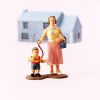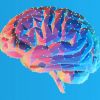-
 +27 +1
+27 +1One-week social media break boosts young women's self-esteem and body image
A study found that young women who took a one-week break from social media experienced significantly higher self-esteem and body image, especially those prone to thin-ideal internalization, highlighting the mental health benefits of temporary social media detoxes.
-
 +14 +1
+14 +1Social media dependency is linked to a reduced preference for freedom, study finds
Social media dependency is associated with a reduced preference for freedom, according to new research published in Psychological Reports. The study suggests that people who are heavily dependent on social media may use it as a way to escape from the uncertainties and challenges of the real world.
-
 +24 +1
+24 +1A vicious cycle of sedentary behavior and depression may occur within romantic relationships
A new study published in Mental Health and Physical Activity finds that when one partner is depressed, the other increases their sedentary behaviors and vice versa. This research reveals the potential negative impact partners can have on one another. Understanding this can help clinicians and individuals take steps to prevent the vicious cycle of depression and sedentary behaviors in partnerships.
-
 +1 +1
+1 +1New psychology research shows long gaps in conversation function differently between strangers and friends
A new study published in Philosophical Transactions B explores whether pauses in conversation are experienced or interpreted differently depending on whether the conversation is between friends or strangers.
-
 +21 +1
+21 +1Ghosting friends increases depressive tendencies over time, study finds
A two-wave panel survey of young adults revealed that ghosting friends and ghosting partners are two different phenomena. Ghosting romantic partners is predicted by communication overload i.e., receiving more messages than one is able to handle and had no impact on well-being, while ghosting friends was predicted by one’s self esteem and increased depressive tendencies over time.
-
 +2 +1
+2 +1Psychedelic therapy may be better than conventional depression and anxiety treatments for patients with advanced cancer
In people with advanced cancer, psychedelic drugs like psilocybin, LSD and MDMA may significantly reduce the severity of depression and anxiety symptoms. Roughly 10% of patients with cancer experience anxiety, while 20% report depression. However, current research suggests that available prescription antidepressants do not significantly decrease depressive symptoms in cancer patients compared with a placebo.
-
 +10 +1
+10 +1Giving kids no autonomy at all has become a parenting norm. The pandemic is making this worse
Teaching children independence breeds confidence and social skills. Why aren’t we encouraging this?
-
 +17 +1
+17 +1How Parents’ Personalities Shape Children’s Lives
Study reveals how a parent's personality type can influence and shape the lives of their children, for better or worse.
-
 +1 +1
+1 +1LGB individuals do not have better auditory "gaydar" compared to heterosexuals, study finds
Some people believe that lesbian, gay, and bisexual (LGB) individuals are better at identifying someone’s sexual orientation than heterosexual individuals. But new research has found that although there are some differences in how LGB and heterosexual individuals make judgments of male and female speakers, overall, they were equally (in)accurate in their so-called “gaydar” judgments.
-
 +19 +1
+19 +1New research finds when small talk becomes awkward, we are more likely to blame ourselves
A recent study published in the Journal of Applied Psychology found that individuals are more likely to blame themselves when casual conversations become difficult. The findings reveal that the self-serving bias you find in many other human activities seems to disappear when engaging in casual conversation. This insight may be helpful to those who experience anxiety during small talk.
-
 +3 +1
+3 +1People share fake news because they don’t want to be ostracized from their social circles, study suggests
A series of studies published in the Journal of Experimental Psychology: General provides evidence that the pressure to conform is a key psychological driver of sharing fake news. The findings indicate that failing to share misinformation that is endorsed by other group members can lead to adverse social consequences.
-
 +15 +1
+15 +1Mothers who feel unworthy of being loved have less supportive responses to child distress
A study of low-income mothers showed that those with more attachment anxiety (i.e., mothers feeling unworthy of being loved) tended to show more unsupportive reactions to their children’s distress and to attribute child’s distress (e.g., crying) to the negative qualities of the child. The study was published in the Journal of Child and Family Studies. ...
-
 +4 +1
+4 +1The Cause of Depression Is Probably Not What You Think
People often think they know what causes chronic depression. Surveys indicate that more than 80% of the public blames a “chemical imbalance” in the brain. That idea is widespread in pop psychology and cited in research papers and medical textbooks. Listening to Prozac, a book that describes the life-changing value of treating depression with medications that aim to correct this imbalance, spent months on the New York Times bestseller list.
-
 +17 +1
+17 +1If you believe yourself to be attractive, you are more likely to feel your life has meaning
New research published in the Journal of Positive Psychology examines the role that physically attractiveness may play in feeling that life is meaningful. Three studies involving 1,234 participants revealed that the more attractive you believe yourself to be, the more likely you are to report feelings of existential significance.
-
 +20 +1
+20 +1How to Get People to Share Their Secrets With You
The antecedents and consequences of revealing secrets are discussed.
-
 +19 +1
+19 +1Youth who perceive themselves as more attractive engage in more offending, study finds
Thinking that you are “good-looking” might be a risk factor for crime, according to new research published in the journal Crime & Delinquency. The study found that youth who perceived themselves as more attractive were more likely to engage in offending behaviors.
-
 +12 +1
+12 +1First impressions of strangers' faces are strongly influenced by political partisanship
New research published in PLOS ONE reveals a potential consequence of political polarization in the United States. The study provides evidence that partisan labels influence first impressions of strangers’ faces.
-
 +13 +1
+13 +1Eight weeks of mindfulness training improves adolescents’ attentional control, study finds
A new study published in the Journal of Adolescence tested an 8-week mindfulness training program among a group of adolescent and adult females. The results revealed that both teens and adults showed improvements in reorienting their attention following mindfulness training.
-
 +18 +1
+18 +1Risky online behaviour ‘almost normalised’ among young people, says study
EU-funded survey of people aged 16-19 finds one in four have trolled someone – while UK least ‘cyberdeviant’ of nine countries
-
 +10 +1
+10 +1Psychologists have started to examine why people engage in "sad-fishing" on the internet
New research published in the Journal of American College Health investigated the relationship of sad-fishing to attachment style as well as interpersonal and online support.
Submit a link
Start a discussion




















